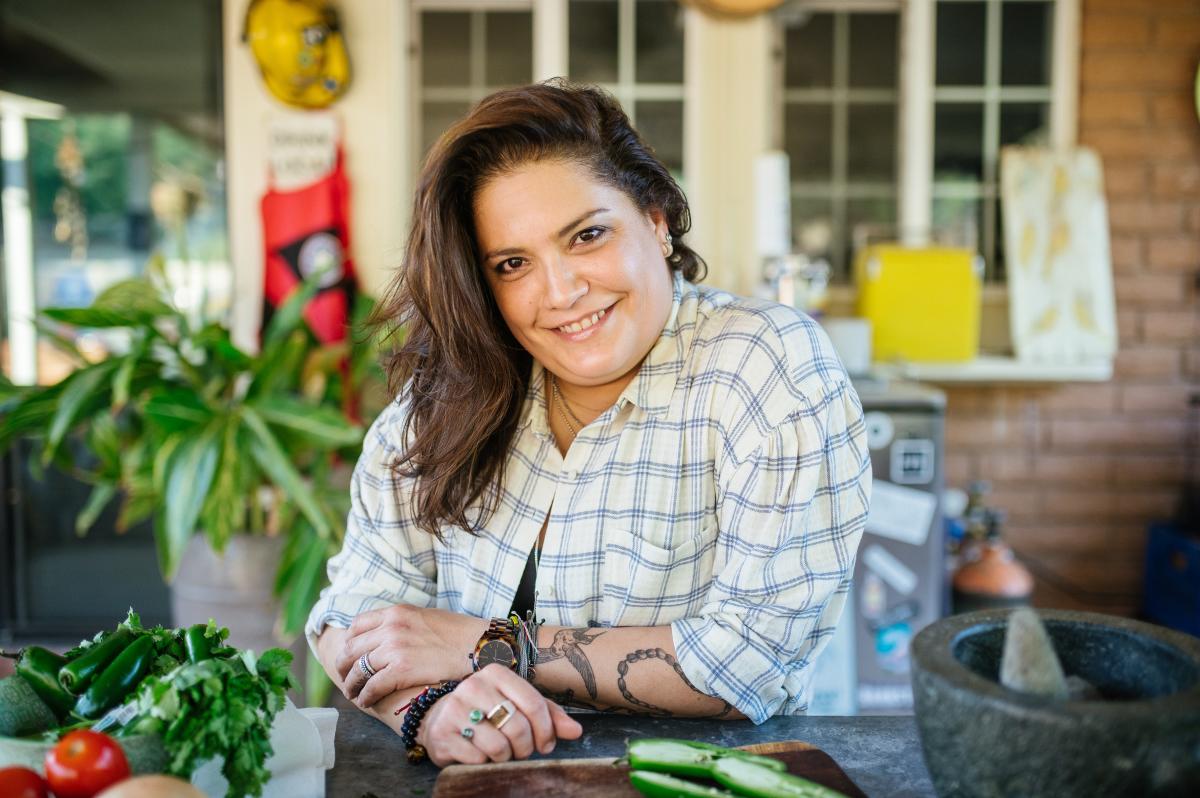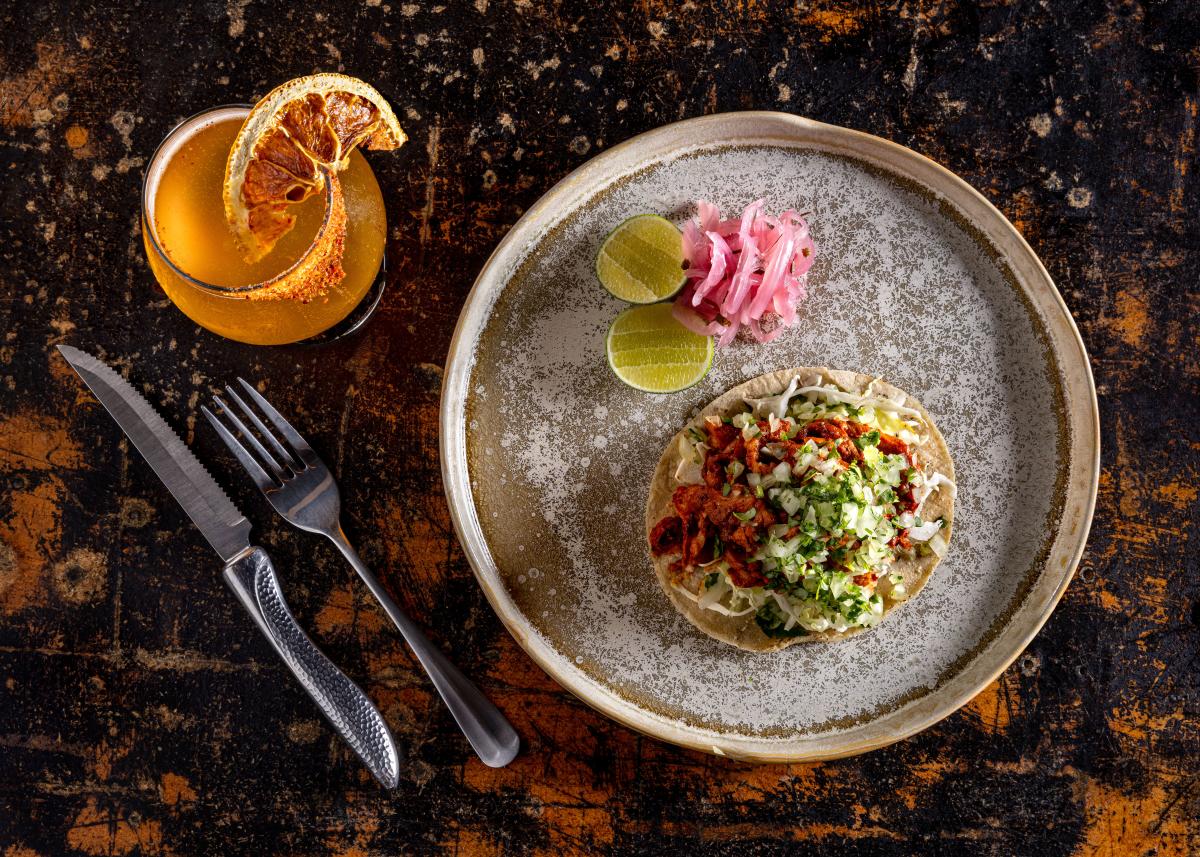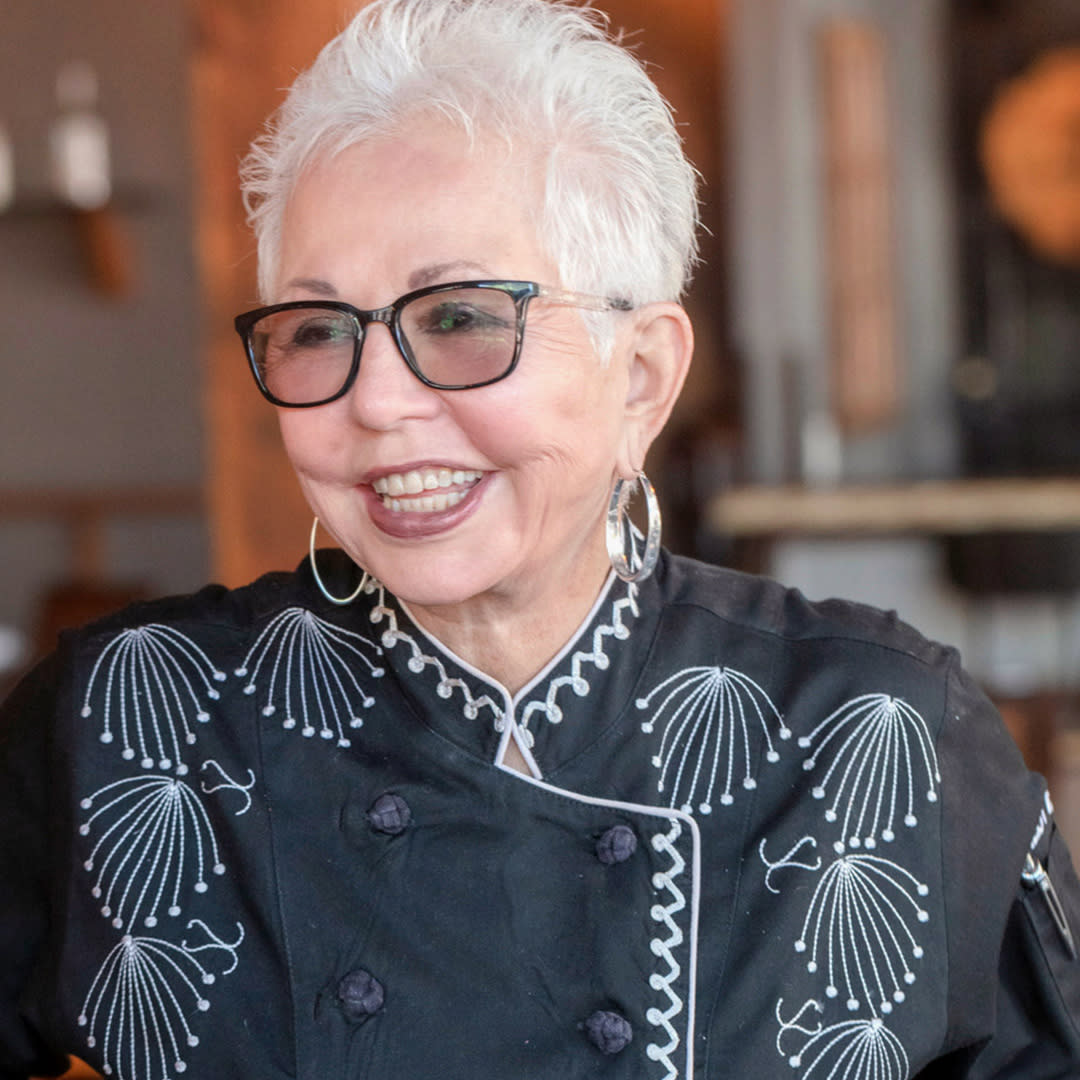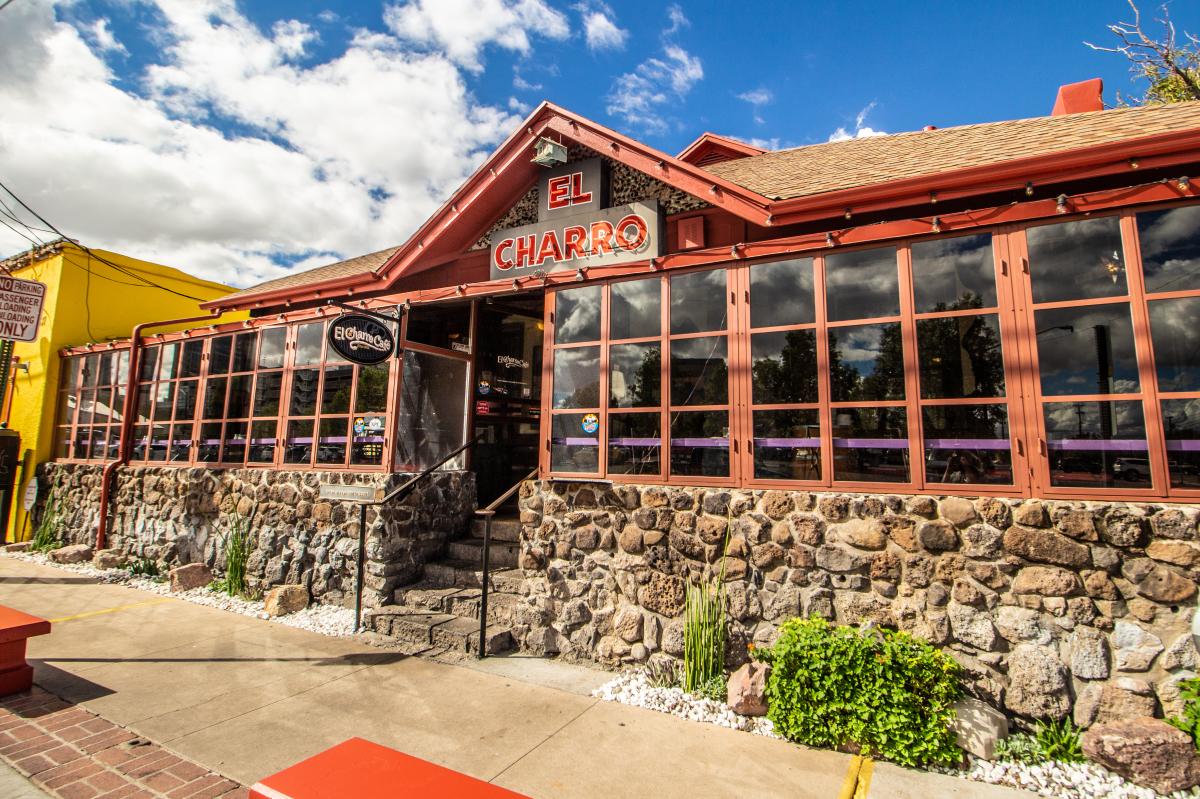Who's behind Tucson's incredible Mexican food? A series of talented women unafraid to break down some walls.
By Jackie Alpers
Close your eyes and think of what a chef looks like. What you imagine probably varies – it might be someone in a white coat with a tall hat, it might be a specific celebrity chef, or a guy in a leather apron with arms full of tattoos.
What you might not have pictured, especially if you’re not deeply acquainted with Tucson’s UNESCO- City-of-Gastronomy-designated culinary scene, is a woman running the show.
Tucson’s Mexican food which is (let’s just say it) the best outside of Mexico has a history written by women at the stove and at the counter.
Tucson’s world-renowned Mexican cuisine would not exist if it had not been for the women who forged ahead no matter what the circumstances and who, in the past, mostly worked behind the scenes, as wives or family members of male proprietors, the unsung heroes of Tucson’s Mexican food scene. Nanas and Tias and working moms trying to survive, to thrive.
They are pioneering in every sense of the term.
And Tucson’s women chefs are still serving it up Sonoran style, meaning they are contributing to one of the most unique regional cuisines in the world. Sonoran style Mexican cuisine would not exist if it had not been for a long list of these women.
We could fill this entire publication with their stories (someone can feel free to steal that for a book idea), but in this case, there are two who currently share the spotlight, albeit for very different reasons and with very different stories. In the end, however, they’re among Tucson brightest culinary stars because they both share a passion for people and for food.
MARIA MAZON
Boca Tacos y Tequila
It’s the height of the pandemic in Portland, Oregon. A television camera is focused on Maria Mazon who has left her twelve-year-old son at home in Tucson with her partner Lily to compete in Season 18 of Top Chef: Portland.
I’m watching from home. Maria and her team have just aced the “Restaurant Wars” episode. She looks confidently, directly into the camera and explains that one of the reasons she won was because she is like, “Monica on Friends,” once she steps out of the kitchen and into the dining room, she’s, “The Hostess with the Mostest.”
Maria ended up just missing the finale, leading to one of the most emotional episodes of television I can remember. While she wasn’t the season’s winner, the show did create an opportunity for America (and the world, seemingly) to get an invitation to Tucson and its distinct over-the-top hospitality. It’s not often, after all, that someone here is scolded, like Maria was on the show, for providing too much food.
Yes, she’s now starring in commercials and the lines seemingly keep getting longer at her restaurant, Boca, on Fourth Avenue, but her story is defined by pushing uphill, not by showing up to immediate success.
Fifteen years earlier, Alice Mazon was there for Maria who had moved back to town from Sonora, Mexico for college and was living in an apartment in the Foothills. She got a job waitressing at a nearby restaurant called Papagayo. The experience was a turning point in her life and Alice Mazon was part of the catalyst for change. Alice wasn’t cooking at Papagayo, but in taking care of business, she taught Maria how to be a restaurant owner first and a chef second.

Alice let Maria develop special menus and cook even though she had no kitchen experience. The first menu Maria developed is now framed in her home. Papagayo Mexican Restaurant is where Maria discovered her love and passion for cooking for which she will be forever grateful.
The years passed. Maria married and divorced, had a son, Rene Jr., opened Boca Tacos y Tequila (then near the University of Arizona on Speedway Blvd.), met and then married Lily (one of the first female firefighters in Tucson and deserving of a story of her own).
Over the years, she moved from the former home of Greasy Tony’s to 4th Avenue, growing her business in her own building. Her loyal fans followed, eagerly awaiting a tray of Maria’s wild and adventurous salsas, freshly made tortilla chips, and out-of-this-world tacos.
And to think, there was a time when Maria was struggling to buy ingredients or sleeping on her restaurant floor to watch the beans on the stove…but like any great story, the difficult times helped create the hero she is today. If there’s a banana salsa in the metal tray that comes to your table, that’s a callback to when bananas were on clearance, forcing Maria and her trusty blender to come up with a sauce that worked with what she had. PBR will also be on the menu at Boca because that’s the beer her friends bought for her to serve before she could afford anything else to serve to her guests on Speedway.
When Maria thinks of the challenges she overcame to become the chef and restaurant owner she is today, she says she is most proud that she listened and paid attention to her fear. “I gave my fear a place, like, okay, I get it. I’m afraid. Like, ‘Hey, what’s up fear? How you doin’?”
A James Beard nomination, a long run on the most important food show on TV, appearances in commercials on her résumé, with a lot more to come – it’s fair to say she’s doing well in the face of fear.

Carlotta Flores
El Charro Café
If you tried to count the Mexican restaurants in Tucson, you’d probably find that a new one opened up before you finished your tally. This is an incredible city with a wide variety of choices on that front, but ask most people here where you should go if you have one opportunity to try to de facto cuisine of Southern Arizona and they’ll say El Charro, probably the historic downtown location.
And for good reason. As El Charro Café celebrates its 100th anniversary in 2022 – the longest-operating family run Mexican restaurant in the country – their story is one of two indomitable women: Monica Flin and her grand-niece, Carlotta Flores, each basically running the business for 50 of those 100 years.
In 1922, after the death of her husband, Monica Flin returned home to Tucson from Mexico and decided to open a restaurant. One of her sisters lent her money for the rent needed to open the restaurant in a small storefront. She named it after the “gentlemen horsemen” of Mexico… El Charro Café.
Money was tight, but Monica was resourceful. In what her family often lovingly referred to as an early adaptation of micro-funding, Monica would take a diner’s order, run out the back door to the neighboring Chinese grocer for ingredients, rush back and prepare the meal, serve it, get paid, then dash back to the grocery to pay her bill. It worked. The restaurant thrived for decades, before seeing some struggles in the early seventies.
In 1972, three years before her death, she passed the restaurant on to the grand-niece who turned one restaurant into an empire, Carlotta Flores.
Carlotta was no novice in the kitchen when she took over the family restaurant – she ran a catering company in the Los Angeles area at the time – but thankfully she had the vision to see what El Charro could be become, since her original mission coming home was to close out the business’s affairs. As Carlotta told Jane and Michael Stern in their cookbook collecting El Charro’s recipes in 2002: “I took one look at [the building] and remembered all it meant to me, to Monica, and to so many people in Tucson, and I said to Ray [my husband], ‘We cannot sell it!’”
Carlotta began modernizing the restaurant and its menu, while still retaining the history and tradition of the culinary landmark. Presciently, one of Carlotta’s innovations was to make the menu subtly healthier, a trend that continues across their brand today, although the classic chimichanga will also continue to be a delightfully fried exception. She kept the star dishes of El Charro’s menu intact while expanding and developing new dishes of her own.

El Charro is now the oldest family-owned Mexican restaurant in the United States, and as they mark 100 years, Carlotta and her family are both celebrating and reflecting on how Monica’s dream of owning a restaurant evolved into a successful corporation. The Flores family could probably just hit copy and paste El Charros, but instead, Carlotta thrives on expanding both what’s possible for her company and using the spirit of collaboration to take the organization farther than Monica could have ever imagined.
There’s a casual eatery in the suburbs south of Tucson (Pub 1922), an incredible steak and seafood concept (Charro Steak and Del Rey) downtown, a plant-focused healthy take on borderlands cuisine (Charro Vida), and a sandwich-and-salad-centric collaboration with fellow James Beard award nominee Don Guerra of Barrio Bread, the fittingly-named Barrio Charro.
And then, in this 100th year of El Charro cuisine, it all comes full circle in some ways. Downtown Tucson is now the home of The Monica, a kitchen and patio in the City Park building on Congress Street. Somewhat surprisingly, this isn’t a Mexican-forward restaurant, but instead, a celebration of the from-scratch recipes that make Tucson great. Family- oriented, made with love. What more would you expect from a restaurant honoring one of Tucson’s hospitality pioneers?
Mexican food history is truly told through the lives of women, and this area couldn’t be luckier.

